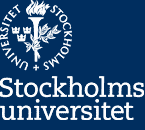at the Department of Materials and Environmental Chemistry. Closing date: 24 April 2018.
The Department of Materials- and Environmental Chemistry (MMK) is one of the largest departments at the Faculty of Natural sciences with about 130 employees. The research activities of MMK are in the areas of Materials and Solid-state Chemistry focusing on different classes of materials; e.g. ceramics and glasses, self-assembled and porous materials, and soft matter. The work often encompasses synthesis, characterisation by X-ray diffraction and electron microscopy, NMR studies, modelling with computer simulations of materials with a potential for various applications. Environmental aspects are important for the research activities.
Project descriptionProject title: Synthesis and characterization of nanoparticles for electrocatalytic production of hydrogen.
Supervisor: Professor Mats Johnsson, mats.johnsson@mmk.su.se.
The project will focus on synthesis and characterization of nanoparticles aimed as electrocatalysts for hydrogen production based on excess glycerol from biofuel production and waste carbohydrates from wood-based Kraft pulp processes.
Many research projects aiming at hydrogen production focus on water splitting. The water oxidation reaction is associated with high anodic potentials due to unfavorable thermodynamics and slow reaction kinetics. Oxygen is a by-product from hydrogen production from water and is normally just released into the atmosphere. The approach in the present project is to replace the anodic reaction with partial oxidation of alcohols that results in a large decrease in electrical energy demand for hydrogen evolution and also valuable anodic products. This PhD project is part of the program Materials for energy applications funded by the foundation for strategic research (SSF). The project group consists of researchers from KTH and SU and the PhD student will also interact with Swedish enterprises. The target of the program is development of efficient and selective catalysts through an effort involving theory, materials and electrocatalytic design and testing.
The successful candidate should have a background in chemistry or materials science with an interest in synthetic inorganic chemistry and in utilizing several characterization methods such as SEM-EDS, TEM, Powder X-ray diffraction, and electrochemical measurements. Knowledge of those methods is a plus although not strictly required.
More info on requirements and how to apply at:

I found your this post while searching for some related information on blog search...Its a good post..keep posting and update the information. Best PhD Proposal Writing Service
ReplyDeleteIt was wondering if I could use this write-up on my other website, I will link it back to your website though.Great Thanks. english learning
ReplyDeleteBest University of Yoga and Naturopathy in Uttarakhand
ReplyDeleteBest University for Pharmacy in Uttarakhand
Good Blog Post.
ReplyDeleteBest University for Paramedical in Roorkee
Best University for Teacher Education in Uttarakhand
I have to search sites with relevant information on given topic and provide them to teacher our opinion and the article. PhD Thesis Writing Service UK
ReplyDeleteI don t have the time at the moment to fully read your site but I have bookmarked it and also add your RSS feeds. I will be back in a day or two. thanks for a great site. sustainable underwear
ReplyDeletebuilding design I think this is an informative post and it is very useful and knowledgeable. therefore, I would like to thank you for the efforts you have made in writing this article.
ReplyDeleteYour commitment to providing your students with an inclusive and supportive environment is admirable. I believe that your research group would be an excellent place for any PhD students who are looking to make a meaningful contribution to the field of inorganic chemistry. Dissertation Help Online
ReplyDelete